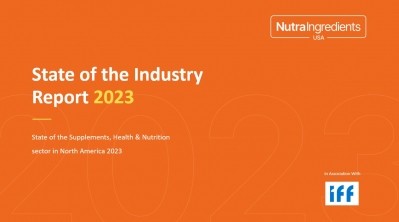Sleep supplement sales contract after two boom years

Sleep supplements were one of the big winners of the pandemic years as consumers sought out natural options to manage stress. And that is reflected in the growth of the category from 2019 to 2020 when year-on-year growth of 28.6% was reported by SPINS in the mass* and natural channels**.
There were suggestions from some stakeholders in late 2022 that the overall dietary supplements market was undergoing something of a reset as the record-breaking sales of the pandemic years, and 2020 in particular, slowed as consumers adjusted to a ‘new normal’ amid rising inflation.
While we await data from other segments and the overall category, it’s clear that such predictions did play out in the sleep supplements space. According to SPINS data, sales of sleep supplements market totaled $606,018,667 at the very start of 2021 and had grown a further 21.6% to hit $737,092,129 by the very start of 2022.
Twelve months later, and sales of sleep supplements were still over $700 million, a decline of 4.2% on the previous year, but still a significantly bigger category than in 2019 when it was valued at $432 million.
But the dollar sales numbers are only half the story, and true declines seem to have been offset by inflation. Unit sales actually declined 10% in 2022, according to SPINS.
Another year of limited or no growth?
Commenting on the data, Scott Dicker, Market Insights Director at SPINS, told NutraIngredients-USA: “As we look at the data on sleep supplements for 2022, we see the first dating back to 2020. This 4% decline in sales comes after back-to-back years of double-digit growth. Much of this can be contributed to the largely uncertain economy and inflation where consumers were forced to prioritize their supplement purchases due to exploding grocery prices. This is evidenced by how unit prices declined by more than dollars, the opposite of what we see in most food and beverage categories.
“Also, many of the new pandemic supplement users have been making their way through the different categories, with sleep and stress their second stop – right after immune. This leads them to be currently exploring health focuses such as hydration and performance. I would anticipate another year with limited or no growth for sleep supplements in 2023 given the economic outlook. The long-term view, however, is still strong as consumers will continue to look for sleep support.”
Melatonin still rules the roost
The category is still dominated by melatonin, which was responsible for 91.5% of all sleep supplement sales.
A recent survey from the Sleep Foundation indicated that 27.4% of adults said they use melatonin regularly, with web searches around melatonin increasing by 36% during the winter months.
Reflecting the overall category, sales of melatonin supplements declined in 2022 by 4% and unit sales declined 10%, but this came on the back of year-on-year dollar growth of 22% and 41% in 2021 and 2020, respectively.
Melatonin was the subject of some negative headlines in 2022, when a report from the Centers of Disease Control detailed increases in the annual number of pediatric ingestions of melatonin reported to poison control centers. In addition, Japanese scientists raised questions about the use of melatonin by asthmatics.
Ashwagandha
One ingredient to keep an eye on this year in this category is ashwagandha (Withania somnifera), with sales growing 94% in 2022, although the herb’s presence in the sleep category remains small with total sales of only $1.26 million, according to SPINS. Unit sales increased 152% year-on-year from 2021 to 2022.
The efficacy of the herb to support healthy sleep is supported by published clinical data, with, for example, papers in the Journal of Ethnopharmacology (KSM-66, 2020, doi: 10.1016/j.jep.2020.113276) and Sleep Medicine (Shoden, 2020, doi: 10.1016/j.sleep.2020.03.012).
Since Ashwagandha is a well-known adaptogen — a substance believed to increase the body’s ability to adapt to different forms of stress – most ashwagandha products in the market are positioned for stress management.
According to the most recent herb market report by the American Botanical Council, overall sales of ashwagandha totaled almost $109 million in 2021 (HerbalEGram, Volume 19, Issue 11, November 2022).
Valerian – an herb in decline?
Another standout from the SPINS data, but this time for the wrong reasons, was Valerian (Valeriana officinalis), an herb with a long history as use as a sleep aid dating back to Classical Greece.
Sales of valerian sleep supplements have declined every year since 2019, according to the SPINS data, with year-on-year changes of 13%, 21%, and 26% in 2020, 2021, and 2022. Overall sales totaled just over $5 million in 2022, compared to almost $11 million in 2019.
----------------------------------------------
SPINS Channel Definitions
*SPINS MultiOutlet Channel (powered by IRI) covers the Grocery Outlet (store with $2M+ annual ACV), the Drug Outlet (chains and independent stores, excluding Rx sales), and selected retailers across Mass Merchandisers, including Walmart, Club, Dollar, and Military representing over 105,000 retail locations.
** SPINS Natural Enhanced Channel is composed of full-format stores with $2 million+ in annual sales and 40% or more of UPC coded sales from natural/organic/specialty products. It Includes co-ops, associations, independents, and large regional chains (excludes Whole Foods & Trader Joes). This channel breeds innovation and sustains the level of authenticity and high product standards that define the industry. It represents over $28B in total sales, and encompasses over 1850 stores.















